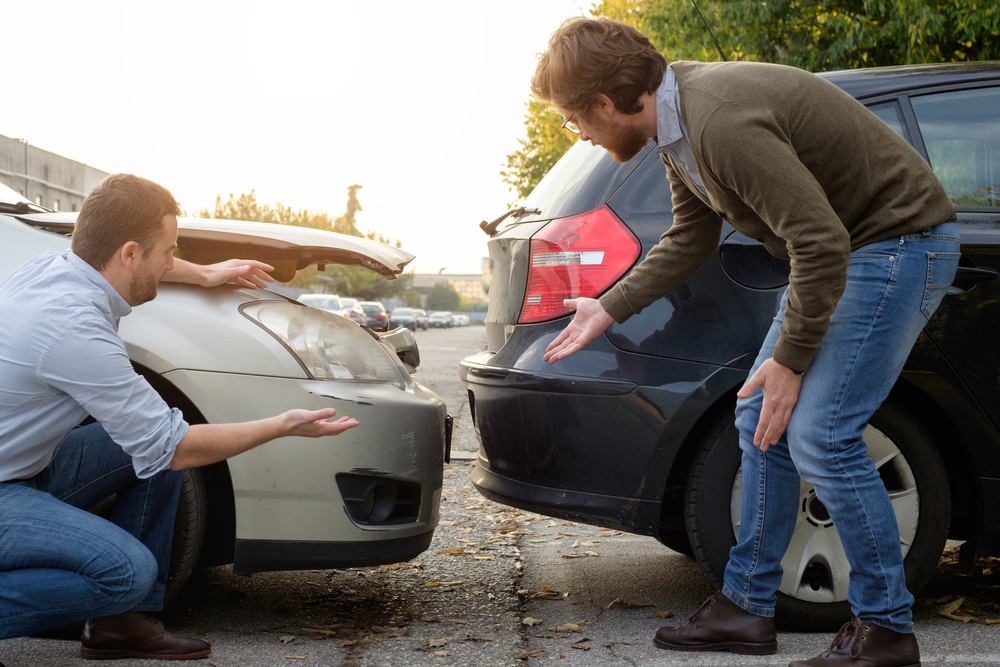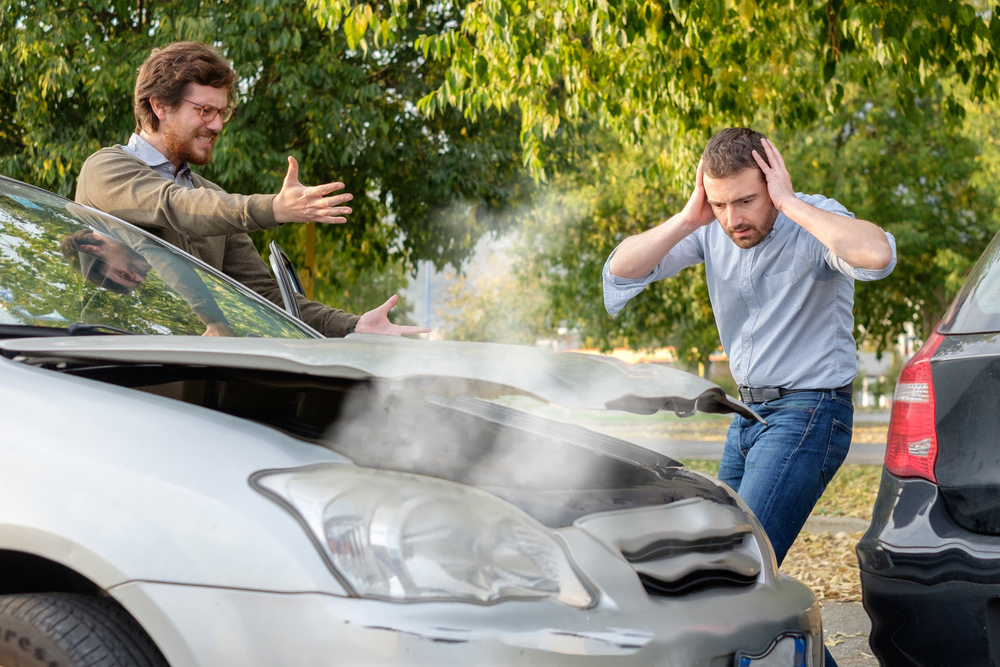
What does it mean to be the driver “at fault” for a collision in an at-fault state like Georgia? That’s an important question because this issue could impact the rates you pay for car insurance.
So let’s review what at-fault means as it concerns cheap car insurance in Georgia and how fault is determined in the Peach State.
What’s the Difference Between an At-Fault State Like Georgia and a No-Fault State?
At-fault (or tort) states ask insurance companies to assign blame in a car accident, while no-fault states do not.
Georgia is known as an at-fault state. That means, basically, that the car insurance company of the driver deemed to be at fault for an accident will pay for all covered damages for the other parties involved, up to the at-fault driver’s coverage limits.
In at-fault states, such as Georgia, a determination of who is at fault is important. The insurance company of the driver responsible for the collision will have to pay for the damage or injury to other vehicles, drivers, passengers, and personal property – up to the limits of the insurance policy.
Keep in mind that “fault,” in terms of car insurance claims, doesn’t have anything to do with the court system. You can drive in a no-fault state like Florida and still be assigned blame for an accident from the authorities and fined or otherwise penalized. If you are, your car insurance rates can go up.
In the 12 U.S. states and one territory that are no-fault states, insurance companies ignore fault. If you get into an accident, your insurer will handle your car insurance claims regardless of who was to blame. The other driver’s policy will cover their damages.
One of the key purposes of no-fault insurance is to simplify the claims adjustment process. If there’s covered damage, your insurer will settle the claim without an investigation to first determine fault.
Fault, as it applies to insurance coverage, only pertains to which company will handle the car insurance claims.
What Factors Will Get Georgia Drivers Ruled At-Fault?
Who is at fault for a car accident is determined by the insurance companies and depends on factors such as police reports and witness statements. In many cases, the at-fault driver broke a traffic law that caused the wreck.
The first step your claims adjuster is likely to make is to read the police report carefully. A copy will be given to you and made available to your insurance company. It will be based on the responding police officer taking witness statements, talking with all involved parties, and examining the accident site for such clues as broken glass or skid marks.
From all of that, the officers will document their interpretation of what happened and who was responsible.
In the simplest of cases, it will be readily apparent which driver was at fault. Here are a few of the factors that can determine the guilty party.
- Traffic Laws Were Broken
If the other driver was speeding, weaving from lane to lane, and driving through a red light before hitting your car in the intersection, that’s a pretty open-and-shut case of guilt. If one driver recklessly broke traffic laws and the other drove safely and legally, it might be obvious which driver will at least look guilty.
- One Motorist Drove Negligently
This is when the police report shows a driver not maintaining focus on the road and the job of driving. The motorist might have been talking on the phone, texting, or eating right before an accident.
- One Car Is Dangerously Maintained
The less at-fault driver thought the approaching vehicle was a motorcycle because it only had one working headlight. Or a sudden stop went unnoticed by a trailing car because the first driver had no brake lights. Or the accident was caused when one driver’s vehicle blew a tire that had virtually no tread. This kind of vehicular negligence can lead to collisions and at-fault designations for drivers.
Keep in mind, that a motorist can drive recklessly for miles and still not be responsible for an accident that happens when another driver jumps a red light and hits the reckless driver. So the responding officer must be able to put all facts in the context of the moment before assigning guilt.

What Happens When Both Drivers Are at Fault to Some Degree?
The concept of comparative fault recognizes that responsibility for an accident can be assigned to more than one party.
Let’s say a driver had no brake lights, but the other motorist was following too closely. If that front driver slammed on their brakes and the driver following too closely didn’t react immediately because they saw no brake lights, who’s to blame?
Local authorities in Georgia might well determine that both drivers were at fault to some degree. They’ll assign a percentage of fault to all drivers. If the collision involves you and one other driver, you can collect damages from your insurer as long as you are deemed less than 50% at fault.
If the other driver is declared 75% responsible for what happened, that’s the percentage of the car insurance claim you can make. If the covered amount of your damage is $1,000, your insurer will pay $750 of that total.
Unfortunately, if the authorities rule that you and the other driver were both equally responsible — that is, you’re 50% at fault — you won’t be able to file a claim.
How to Protect Your Car Insurance Claim
Explain your side of the story to the responding officer. Then carefully read the police report, and submit the information to your car insurance company as soon as possible.
If you feel that the police report is unfairly and inaccurately laying the blame on you, consult a lawyer who specializes in car accidents. If the collision resulted in thousands of dollars in damages, you certainly don’t want to be financially responsible for that sum if the information is wrong.
Also, discuss upgrading to a comprehensive insurance policy if that’s not what you already carry. With this protection, even if you are at fault, you’ll get some help paying for the damages to your vehicle.
Uninsured motorist coverage is another inexpensive option that easily pays for itself if you are involved in a hit-and-run event. Even if another driver was responsible, that’s not too helpful to you if they’re uninsured or they leave the scene.